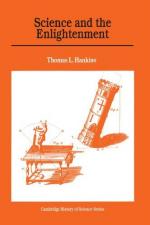
|
| Name: _________________________ | Period: ___________________ |
This quiz consists of 5 multiple choice and 5 short answer questions through Chapter 1, The Character of the Enlightenment.
Multiple Choice Questions
1. According to the beginning of Chapter 1, in 1759 the French mathematician ________ described a revolution that he saw taking place in natural philosophy.
(a) Jean Lerond d'Alembert.
(b) Euler.
(c) Newton.
(d) Carnot.
2. What was the name of the philosopher who had a passion for humanity, a desire to "do good," and a penchant for reform, according to Chapter 1?
(a) Newton.
(b) Condorcet.
(c) Maupertuis.
(d) Descartes.
3. What was the name of the revolution that was a cultural event associated with Galileo Galilei, Johannes Kepler, Rene Descartes, and Isaac Newton?
(a) Scientific Revolution.
(b) Enlightenment Revolution.
(c) American Revolution.
(d) French Revolution.
4. According to Chapter 1, who made Newton into a supreme rationalist whose laws of motion were a priori deductions of pure thought?
(a) Maupertuis.
(b) Marquis de l'Hopital.
(c) Fontenelle.
(d) Roberts.
5. Which German metaphysician, when asked in 1785 if he believed he lived in an enlightened age, answered, "No, we are living in an age of enlightenment."
(a) Immanuel Kant.
(b) Diderot.
(c) Chatelet.
(d) Maupertuis.
Short Answer Questions
1. In 1688, Fontenelle wrote a treatise on the nature of the eclogue or ________.
2. Who coined the expression "Scientific Revolution," according to the narrator in Chapter 1?
3. By what name did natural philosophers want to be known as, according to the narrator in Chapter 1?
4. Madame du Chatelet supported the Leibnizian theory of ________ because it gave a better account of free will.
5. According to Chapter 1, the noble Houyhnhnm in Jonathan Swift's ________ "thought Nature and Reason were sufficient guides for a reasonable animal, as we pretended to be, in showing us what we ought to do, and what to avoid."
|
This section contains 274 words (approx. 1 page at 300 words per page) |

|




